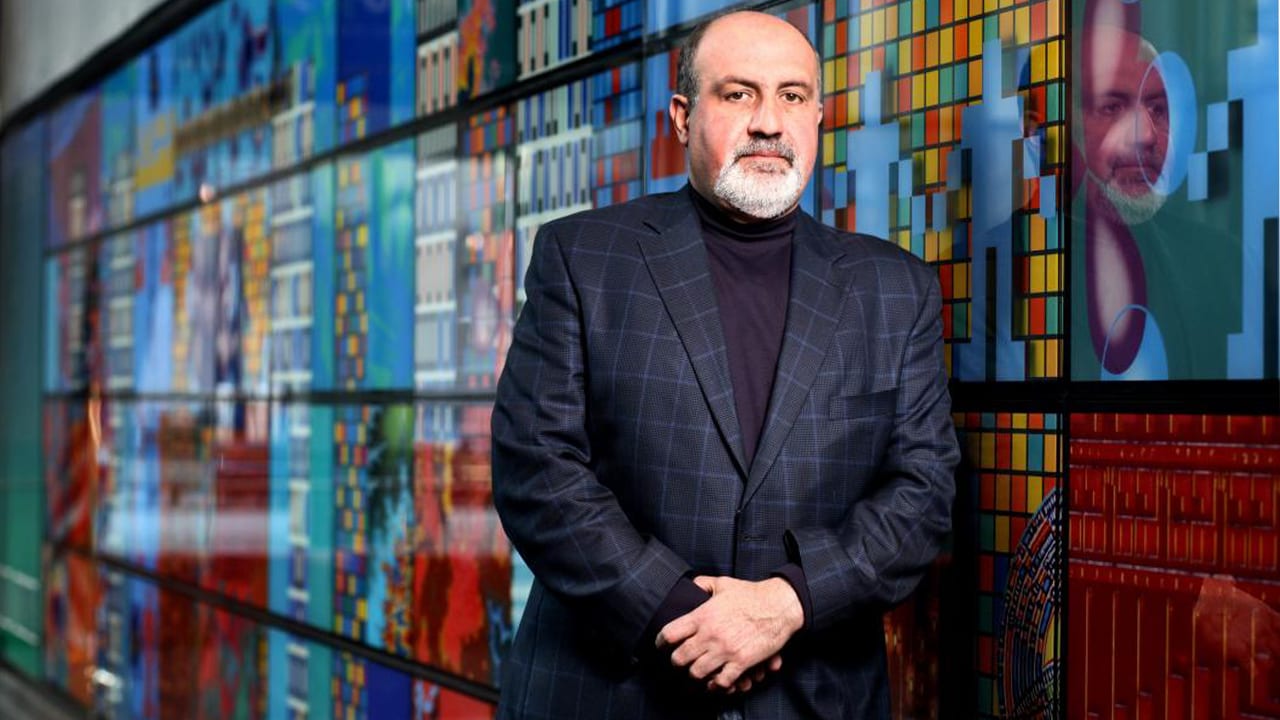'Make your organization antifragile'


Nassim Nicholas Taleb spent 21 years as a risk taker (quantitative trader) before becoming a researcher in philosophical, mathematical and (mostly) practical problems with probability.
Taleb is the author of a multivolume essay, the Incerto (The Black Swan, Fooled by Randomness, Antifragile, and Skin in the Game) covering broad facets of uncertainty. It has been published into 41 languages.
In addition to his trader life, Taleb has also written, as a backup of the Incerto, more than 70 scholarly papers in mathematical statistics, genetics, quantitative finance, statistical physics, philosophy, ethics, economics, & international affairs, around the notion of risk and probability (grouped in the Technical Incerto).
Taleb is currently Distinguished Professor of Risk Engineering at NYU's Tandon School of Engineering (only a quarter time position). His current focus is on the properties of systems that can handle disorder ("antifragile").
Taleb refuses all honors and anything that "turns knowledge into a spectator sport".
Ahead of his keynote speech at People Matters TechHR India 2020 on August 10th, Taleb spoke to People Matters to give a glimpse of what we can look forward to from his talk.
What is a “bad” organization?
Taleb has a clear idea of what he means by a bad organization: “the worst possible organization is an organization that has absolutely no problems ever,” he says. What does he mean by that, exactly? “It's going to be steady returns and one day it's going to collapse.”
Completely smooth sailing, in other words, is no good thing, because it doesn’t allow us to learn to respond and adapt to our environments. We cannot become Antifragile without wrestling with problems, responding and adapting. According to Taleb, these are the two routes available to us: that of stability and that of good volatility. Which path are you - and your organization - currently travelling along?
Listen in to find out exactly what Taleb means by good volatility, the importance of being in-synch with your environment, and how to be more adaptable and antifragile - particularly during this disrupted moment in history.
The necessity of (small) stressors
Expanding on this, Taleb discusses the notion of “good volatility” and the key concept of stressors.
“When I go in the sun, I get darker. It’s not my brain that tells me I need sun protection, but the environment gives me a signal by burning me,” says Taleb. “When I lift weights, the environment gives me a signal. The organic system communicates with the environment via stressors, so removing stressors is removing vital information.”
However, Taleb highlights it’s important to recognise the difference between small risks and ruin problems. “On the other hand you want to prevent the ruin problems,” Taleb goes on to say. “The ruin problems are the things that put you out of business.”
“The idea of Antifragile,” Taleb says, “is trying to explain to people why small stressors are good and big stressors are bad: if I jump one metre, my bones are going to get stronger; if I jump twenty metres, you have nonlinearity.”
In illuminating detail, Taleb will illustrate how this notion of small stressors applies to all aspects of life - business, society, for us as individuals and more.
Who is Antifragile from COVID?
Under COVID, a lack of resilience has become an even more urgent issue as organizations race to adapt to their new world and survive the economic downturn. So, which businesses and individuals have managed to be antifragile with COVID?
Expect bold insights from Taleb regarding who has done this successfully - and why - as well as which industries and companies, in his opinion, have had their fragility exposed by the COVID outbreak.
Defining Risk
But how do we - as individuals and businesses - define those large, potentially ruinous risks?
“It’s so easy to define,” says Taleb. “The larger the risk, the easier it is to figure out what it is.”
When it comes to risks, Taleb says, people tend to get overwhelmed, trying to plot and picture each possible scenario of what could go wrong and think “we have to worry about everything. In business, look at what can bankrupt you and work backwards.”
In many ways, this approach is both empowering and freeing. Rather than growing overwhelmed by risk, we can channel our attention to a handful of them and take it from there. “The good thing about extremes,” Taleb says, “is that you only worry about extremes.”
Clearly, in a disrupted and uncertain world, this recognition of risk and working to build an antifragile organization are more critical than ever before.
Looking forward to welcoming Nassim Nicholas Taleb LIVE for People Matters TechHR Opening Keynote on 10th of August 2020, register here to join us!
Image credit: The Times UK


